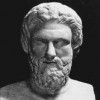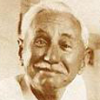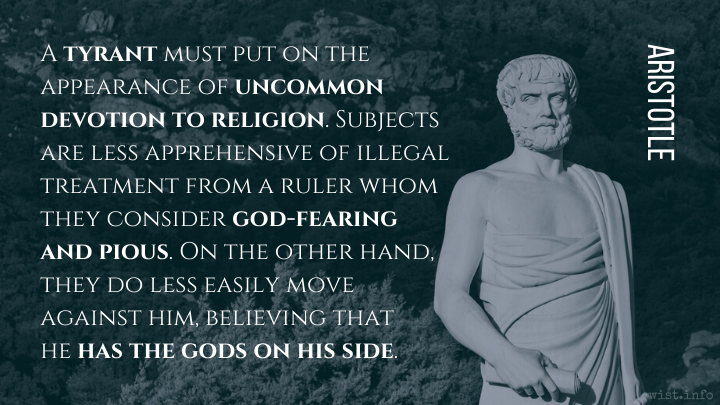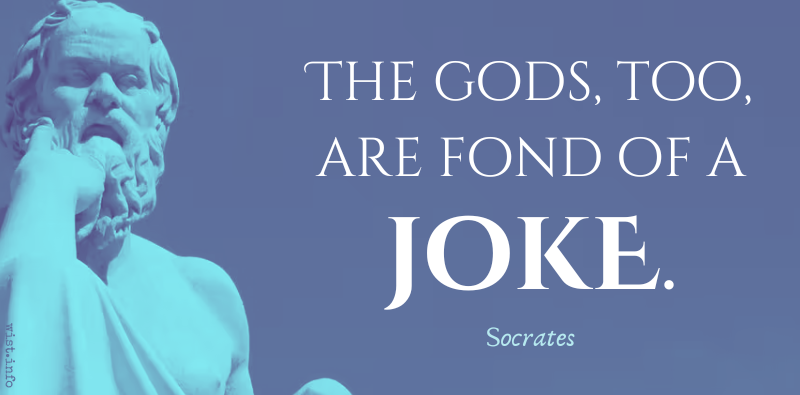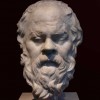After all my time here, I’ve yet to see any problem, however complicated, which, when you looked at it in the right way, didn’t become still more complicated.
Poul Anderson (1926-2001) American writer
Call Me Joe [Arne Viken] (1957)
Sometimes attributed to Arthur Koestler (who attributed the quote to Anderson). See here for more details (and a reference to WIST).
So often we look at a calendar of days as merely a symbol of the passage of time. We forget why we are on this earth. We forget that there is a reason for all of the pain and all of the struggle. We forget that we were put on earth to learn something. If everything were perfect in this life, we would never learn anything new. We would not be able to elevate our spirits through the events that happen to us.
Lynn V. Andrews (b. 1940) American author, spiritualist, counselor
Walk in Balance (1994)
If everything seems under control, you’re just not going fast enough.
Mario Andretti (b. 1940) Italian-American auto racer
(Attributed)
The opposite of bravery is not cowardice, but conformity.
Robert Anthony (contemp.) American psychologist, author
The Ultimate Secrets of Total Self-Confidence, ch. 2 “Bondage or Liberty” (2007)
Full text.
Sooner or later we all discover that the important moments in life are not the advertised ones, not the birthdays, the graduations, the weddings, not the great goals achieved. The real milestones are less prepossessing. They come to the door of memory unannounced, stray dogs that amble in, sniff around a bit and simply never leave. Our lives are measured by these.
I tell them I have worked 40 years to make the W.S. platform broad enough for Atheists and Agnostics to stand upon, and now if need be I will fight the next 40 to keep it Catholic enough to permit the straightest Orthodox religionist to speak or pray and count her beads upon.
What you should say to outsiders is that a Christian has neither more nor less rights in our Association than an atheist. When our platform becomes too narrow for people of all creeds and of no creeds, I myself shall not stand upon it.
The religious persecution of the ages has been done under what was claimed to be the command of God. I distrust those people who know so well what God wants them to do, because I notice that it always coincides with their own desires.
Susan B. Anthony (1820-1906) American reformer, aboltionist, sufferagist
Address to National American Woman Suffrage Association, Washington (23-28 Jan 1896)
(Source)
The media’s power is frail. Without the people’s support, it can be shut off with the ease of turning a light switch.
Corazon Aquino (1933-2009) Filipino political leader [María Corazón Sumulong Cojuangco-Aquino]
Speech, Time Magazine Distinguished Speakers Series (Sep. 1986)
All political parties die at last of swallowing their own lies.
John Arbuthnot (1667-1735) English physician
(1735)
quoted in Richard Garnett, Life of Emerson, ch. 7 (1888)
The church must never become a government factory, carrying on a nationalized industry of religion with the people as the bolts and nuts; with God reduced to the role of cramped advocate of current national policy. Surely the pages of history are replete and the examples in many a foreign country convincing that this kind of church-state union — whatever the original motives, or however noble the original purposes — winds up with a state that is less than stable and a church that is less than sanctified, and with the poor still hungry.
Glenn L. Archer, Jr. (1929-2011) American jurist
Speech, Kansas City (Aug. 1956)
The sad truth of the matter is that most evil is done by people who never made up their minds to be or do either evil or good.
Hannah Arendt (1906-1975) German-American philosopher, political theorist
The Life of the Mind, Vol. 1 “Thinking,” Part 3, ch. 18 (1977)
(Source)
Sometimes rendered (possibly from the original lecture): "The sad truth is that most evil is done by people who never make up their minds to be good or evil."
The most radical revolutionary will become a conservative the day after the revolution.
Hannah Arendt (1906-1975) German-American philosopher, political theorist
“Civil Disobedience,” The New Yorker (12 Sep 1970)
(Source)
Reprinted in Crises of the Republic (1972).
EPOPS: You’re mistaken: men of sense often learn from their enemies. Prudence is the best safeguard. This principle cannot be learned from a friend, but an enemy extorts it immediately. It is from their foes, not their friends, that cities learn the lesson of building high walls and ships of war. And this lesson saves their children, their homes, and their properties.
Aristophanes (c. 450-c. 388 BC) Athenian comedic playwright
The Birds, l. 375 (414 BC) [tr. Anon. (1812)]
Full text.
Alt trans. [Hickie (1853)]: "Yet, certainly, the wise learn many things from their enemies; for caution preserves all things. From a friend you could not learn this, but your foe immediately obliges you to learn it. For example, the states have learned from enemies, and not from friends, to build lofty walls, and to possess ships of war. And this lesson preserves children, house, and possessions."
Alt trans. [O'Neill (1938)] : "The wise can often profit by the lessons of a foe, for caution is the mother of safety. It is just such a thing as one will not learn from a friend and which an enemy compels you to know. To begin with, it's the foe and not the friend that taught cities to build high walls, to equip long vessels of war; and it's this knowledge that protects our children, our slaves and our wealth."
Alt trans. [Goldstein-Jackson (1983)]: "A man may learn wisdom even from a foe."
How many a debate could have been deflated into a single paragraph if the disputants had dared to define their terms?
William James (Will) Durant (1885-1981) American historian, teacher, philosopher
The Story of Philosophy, ch. 2 “Aristotle and Greek Science,” sec. 3 “The Foundation of Logic” (1926)
(Source)
This quotation is frequently misattributed (without citation) to Aristotle (sometimes using "dispute" instead of "debate"), but none of the sources pre-date this passage by Durant. Durant is speaking of Aristotle's development of logic, and his focus on definitions, but the full passage in context is clearly not a quotation:
There was a hint of this new science in Socrates’ maddening insistence on definitions, and in Plato’s constant refining of every concept. Aristotle’s little treatise on Definitions shows how his logic found nourishment at this source. “If you wish to converse with me,” said Voltaire, “define your terms.” How many a debate would have been deflated into a paragraph if the disputants had dared to define their terms! This is the alpha and omega of logic, the heart and soul of it, that every important term in serious discourse shall be subjected to strictest scrutiny and definition. It is difficult, and ruthlessly tests the mind; but once done it is half of any task.
The least initial deviation from the truth is multiplied later a thousandfold.
There is no great genius without a touch of madness.
[Nullum magnum ingenium sine mixtura dementiae fuit.]
Aristotle (384-322 BC) Greek philosopher
(Attributed)
Attributed to Aristotle in Seneca the Younger, "On Tranquility of Mind [De Tranquillitate Animi]" (17.10) (c. AD 60). (Source (Latin)).
Alternate translations:
This quotation as such is not found in surviving Aristotle. It may either represent something from Aristotle that has been lost since Seneca, or else Seneca fabricating a quote, quoting something spurious, or paraphrasing something Aristotle did write, e.g., his comments about madness/melancholy and poets/prominent talents (here and here). See also the Pseudo-Aristotle, Problemata, Book 30, ch. 1:
- "There is no great genius without a mixture of madness." [Example (1851)]
- "No great genius was without a mixture of insanity." [tr. Langsdorf (1900)]
- "No great genius has ever been without a touch of insanity." [tr. Stewart (1900), "On Peace of Mind"]
- "No excellent soul is exempt from a mixture of madness." [Example (1906)]
- "No great genius has ever existed without some touch of madness." [tr. Basore (1932)]
- "No great genius has ever existed without a dash of lunacy." [tr. Davie (2007)]
- "There was never any great genius without a tincture of insanity." [tr. @sentantiq (2018)]
- "There was never a genius without a tincture of madness."
- "No great mind has ever existed without a touch of madness."
Why is it that all those who have become eminent in philosophy or politics or poetry or the arts are clearly of an atrabilious temperament, and some of them to such an extent as to be affected by diseases caused by black bile, as is said to have happened to Heracles among the heroes? [tr. Forster (1927)]
A tyrant must put on the appearance of uncommon devotion to religion. Subjects are less apprehensive of illegal treatment from a ruler whom they consider god-fearing and pious. On the other hand, they do less easily move against him, believing that he has the gods on his side.
Aristotle (384-322 BC) Greek philosopher
Politics [Πολιτικά], Book 5, ch. 11 / 1314b.39
Alt. trans.:
- "Also he should appear to be particularly earnest in the service of the Gods; for if men think that a ruler is religious and has a reverence for the Gods, they are less afraid of suffering injustice at his hands, and they are less disposed to conspire against him, because they believe him to have the very Gods fighting on his side. At the same time his religion must not be thought foolish." [tr. Jowett (1885)]
- "And, moreover, always to seem particularly attentive to the worship of the gods; for from persons of such a character men entertain less fears of suffering anything illegal while they suppose that he who governs them is religious and reverences the gods; and they will be less inclined to raise insinuations against such a one, as being peculiarly under their protection: but this must be so done as to give no occasion for any suspicion of hypocrisy." [tr. Ellis (1912)]
- "And further he must be seen always to be exceptionally zealous as regards religious observances (for people are less afraid of suffering any illegal treatment from men of this sort, if they think that their ruler has religious scruples and pays regard to the gods, and also they plot against him less, thinking that he has even the gods as allies), though he should not display a foolish religiosity." [tr. Rackham (1932)]
- "Further, he must always show himself to be seriously attentive to the things pertaining to the gods. For men are less afraid fo being treated in some respect contrary to the law by such persons, if they consider the ruler a god-fearing sort who takes thought for the gods, and they are less ready to conspire against him as one who has the gods too as allies. In showing himself of this sort, however, he must avoid silliness." [tr. Lord (1984)]
It is manifestly possible to be a good citizen without possessing the goodness that constitutes a good man.
Aristotle (384-322 BC) Greek philosopher
Politics [Πολιτικά], Book 3, ch. 4 / 1276b.34 [tr. Rackham (1932)]
(Source)
Alternate translations:
- "It is quite possible that a citizen, though good as such, should not possess the excellence which characterizes a the good man." [tr. Bolland (1877)]
- "The good citizen need not of necessity possess the virtue which makes a good man." [tr. Jowett (1885)]
- "An excellent citizen does not possess that virtue which constitutes a good man." [tr. Ellis (1912)]
- "That it is possible for a citizen to be excellent yet not possess the virtue in accordance with which he is an excellent man, therefore, is evident." [tr. Lord (1984)]
So also anybody can become angry — that is easy, and so it is to give and spend money; but to be angry with or give money to the right person, and to the right amount, and at the right time, and for the right purpose, and in the right way — this is not within everybody’s power and is not easy; so that to do these things properly is rare, praiseworthy, and noble.
[οὕτω δὲ καὶ τὸ μὲν ὀργισθῆναι παντὸς καὶ ῥᾴδιον, καὶ τὸ δοῦναι ἀργύριον καὶ δαπανῆσαι: τὸ δ᾽ ᾧ καὶ ὅσον καὶ ὅτε καὶ οὗ ἕνεκα καὶ ὥς, οὐκέτι παντὸς οὐδὲ ῥᾴδιον: διόπερ τὸ εὖ καὶ σπάνιον καὶ ἐπαινετὸν καὶ καλόν.]
Aristotle (384-322 BC) Greek philosopher
Nicomachean Ethics [Ἠθικὰ Νικομάχεια], Book 2, ch. 9 (2.9, 1109a.27) (c. 325 BC) [tr. Rackham (1934)]
(Source)
(Source (Greek)). Alternate translations:
Just so to be angry, to give money, and be expensive, is what any man can do, and easy: but to do these to the right person, in due proportion, at the right time, with a right object, and in the right manner, this is not as before what any man can do, nor is it easy; and for this cause goodness is rare, and praiseworthy, and noble.
[tr. Chase (1847)]
And so, too, to get angry is an easy matter, and in any man's power; or to give away money or to spend it: but to decide to whom to give it, and how large a sum, and when, and for what purpose, and how, is neither in every many's power, nor an easy matter. And hence it is that excellence herein is rare and praiseworthy and noble.
[tr. Williams (1869), sec. 37]
So too anybody can get angry -- that is an easy matter -- and anybody can give or spend money, but to give it to the right persons, to give the right amount of it and to give it at the right time and for the right cause and in the right way, this is not what anybody can do, nor is it easy. That is the reason why it is rare and laudable and noble to do well.
[tr. Welldon (1892)]
Thus anyone can be angry -- that is quite easy; anyone can give money away or spend it: but to do these things to the right person, to the right extent, at the right time, with the right object, and in the right manner, is not what everybody can do, and is by no means easy; and that is the reason why right doing is rare and praiseworthy and noble.
[tr. Peters (1893)]
So, too, anyone can get angry -- that is easy -- or give or spend money; but to do this to the right person, to the right extent, at the right time, with the right motive, and in the right way, that is not for everyone, nor is it easy; wherefore goodness is both rare and laudable and noble.
[tr. Ross (1908)]
In the same way, getting angry is also something everyone can do and something easy, as is giving or spending money. Determining whom to give it to, though, and how much, when, for the sake of what, and in what way -- that is no longer something everyone can do or something easy. That is why doing it well is a rare thing and a praiseworthy and noble one.
[tr. Reeve (1948)]
So, too, anyone can get angry or give money or spend it, and it is easy. But to give to the right person, the right amount, at the right time, for the right purpose, and in the right manner, this is not something anyone can do nor is it easy to do; and it is in view of this that excellence is rare and praiseworthy and noble.
[tr. Apostle (1975)]
So too it is easy to get angry -- anyone can do that -- or to give and spend money; but to feel or act towards the right person to the right extent at the right time for the right reason in the right way -- that is not easy, and it is not everyone that can do it. Hence to do these things well is a rare, laudable, and fine achievement.
[tr. Thomson/Tredennick (1976)]
So too anyone can get angry, or give and spend money -- these are easy, but doing them in relation to the right person, in the right amount, at the right time, with the right aim in view, and in the right way -- that is not something anyone can do, nor is it easy. This is why excellence in these things is rare, praiseworthy, and noble.
[tr. Crisp (2000)]
And so too, to become angry belongs to everyone and is an easy thing, as is also giving and spending money; but to whom [one ought to do so], how much, when for the sake fo what, and how -- these no longer belong to everyone nor are easy. Thus in fact acting well is rare, praiseworthy, and noble.
[tr. Bartlett/Collins (2011)]
Note that some translations paraphrase this only to speak of anger, e.g., Edith M. Leonard, et al., The Child: At Home and School (1944):
Anybody can become angry, that is easy; but to be angry with the right person, and to the right degree, and at the right time, for the right purpose, and in the right way, that is not within everybody's power and is not easy.
Well begun is half done.
Aristotle (384-322 BC) Greek philosopher
Politics [Πολιτικά], Book 5, ch. 4 / 1303b30 [tr. Jowett (1885)]
(Source)
People attribute this to Aristotle largely because Jowett used a contemporary proverb in lieu of what Aristotle wrote: "As the proverb says -- 'Well begun is half done.'" The following alternative translations capture his original meaning more closely:
Dignity does not consist in possessing honors, but in deserving them.
Aristotle (384-322 BC) Greek philosopher
(Attributed)
Variant: "Dignity consists not in possessing honors, but in the consciousness that we deserve them."
Citation not identified. Earliest reference found in 1854.
For the name of these gods there is both a serious and a humorous explanation; the serious explanation is not to be had from me, but there is no hindrance to my offering the humorous one, for the gods too are fond of a joke.
[ἀλλὰ ἔστι γὰρ καὶ σπουδαίως εἰρημένος ὁ τρόπος τῶν ὀνομάτων τούτοις τοῖς θεοῖς καὶ παιδικῶς. τὸν μὲν οὖν σπουδαῖον ἄλλους τινὰς ἐρώτα, τὸν δὲ παιδικὸν οὐδὲν κωλύει διελθεῖν: φιλοπαίσμονες γὰρ καὶ οἱ θεοί.]
Socrates (c.470-399 BC) Greek philosopher
In Plato, Cratylus [Κρατύλος], ch. 23 / 406c [tr. Hyers (1969)]
(Source)
The final phrase, "The gods, too, are fond of a joke," is broadly misattributed to Aristotle, without any citation. It is also sometimes misattributed to Edward Albee.
Cratylus is dialogue about the nature of names. Socrates, here, has been asked about the origins of the names of the gods, Dionysus and Aphrodite. Burges (below) notes that Plato had been "partly initiated into the mysteries of Demeter and Dionysus," part of which dealt seriously with the meanings of those deities' names; his avoiding the "serious explanation" is not betray his oath of secrecy to the cult.
(Source (Greek)). Alternate translations:
But the mode of nomination, belonging to these divinities, is both serious and jocose. Ask therefore others about the serious mode; but nothing hinders us from relating the jocose; for these deities are lovers of jesting and sport.
[tr. Taylor (1804)]
But the manner of the appellations given to these divinities, has been said to be both serious and jocose. Ask therefore others about the serious manner; but nothing hinders us from relating the jocose; for these deities are lovers of jesting and sport.
[tr. Burges (1850)]
There is a serious and also a facetious explanation of both these names; the serious explanation is not to be had from me, but there is no objection to your hearing the facetious one; for the Gods too love a joke.
[tr. Jowett (1892)]
You see there is both a serious and a facetious account of the form of the name of these deities. You will have to ask others for the serious one; but there is nothing to hinder my giving you the facetious account, for the gods also have a sense of humor.
[tr. Fowler (1926)]
So, whatsoever that be within us which feels, thinks, desires, and animates us, it is something celestial, divine, and, consequently, imperishable.
Aristotle (384-322 BC) Greek philosopher
(Attributed)
(Source)
The earliest reference to this text that I can find is in Louis Alphonse Cahagnet, Magnétisme: The Celestial Telegraph (1850), who attributes it to Cicero's "Explanation of the Doctrines of Aristotle." It is unclear which of Cicero's actual works this refers to, and it doesn't come across as Aristotelian (or even Ciceronian), and, given the source, may be distorted, poorly translated, or bogus.
‘Twas the saying of an ancient Sage, “That Humour was the only Test of Gravity, and Gravity of Humour. For a Subject which would not bear Raillery is suspicious; and a Jest which would not bear a serious Examination is certainly false Wit.”
Anthony Cooper, 3rd Earl of Shaftesbury (1671-1713) English politician and philosopher
Sensus Communis: An Essay on the Freedom of Wit and Humour, Part 1, Sec. 5 (1709)
(Source)
Often incorrectly attributed to Aristotle. Shaftesbury, according to his footnote, is paraphrasing from Aristotle quoting Gorgias Leontinus. The Latin translation is "Seria risu, risum seriis discutere" ("In arguing one should meet serious pleading with humor, and humor with serious pleading"). Shaftesbury's second sentence is his own commentary.
In Lord Chesterfield, in a letter to his son (6 Feb 1752), rendered it, "Ridicule is the best test of truth."
We are what we repeatedly do. Excellence, therefore, is not an act but a habit.
Aristotle (384-322 BC) Greek philosopher
Nicomachean Ethics [Ἠθικὰ Νικομάχεια] (c. 325 BC) (paraphrase)
(Source)
Variants:Not actually Aristotle, but a summary by Will Durant, The Story of Philosophy: The Lives and Opinions of the World's Greatest Philosophers (1926), ch. 2 "Aristotle and Greek Science," sec. 7 "Ethics and the Nature of Happiness" (1926):
- "We are what we repeatedly do. Excellence, then, is not an act, but a habit."
- "We are what we repeatedly do, therefore excellence is not an act, but a habit."
Excellence is an art won by training and habituation: we do not act rightly because we have virtue or excellence, but we rather have these because we have acted rightly; "these virtues are formed in man by his doing the actions"; we are what we repeatedly do. Excellence, then, is not an act but a habit: "the good of man is a working of the soul in the way of excellence in a complete life ... for as it is not one swallow or one fine day that makes a spring, so it is not one day or a short time that makes a man blessed and happy."
The quoted phrases are from the Nicomachean Ethics, Book 2, ch. 4; Book 1, ch. 7.
It is the mark of an educated mind to be able to entertain a thought without accepting it.
Aristotle (384-322 BC) Greek philosopher
(Spurious)
First attributed to Aristotle in Lowell L. Bennion, Religion and the Pursuit of Truth (1959). Unfound as such.
Sometimes thought (though I feel it's a bit of a stretch) a misinterpretation of Nicomachean Ethics 1.3.4 (1094b): "For it is the mark of an educated person to search for the same kind of clarity in each topic to the extent that the nature of the matter accepts it."
More discussion of this quotation:
Now and then a blinde man may hit a crow.
If I were in the President’s place I would not get a chance to resign. I would be lying in a pool of my own blood hearing Mrs. Armey standing over me saying, “How do I reload this damn thing?”
Dick Armey (b. 1940) American politician, economist
Press Conference (15 Sep. 1998)
When asked during the Monica Lewinsky scandal if President Clinton should resign. More information.
I believe every human has a finite number of heartbeats. I don’t intend to waste any of mine running around doing exercises.
There is no such whetstone, to sharpen a good wit and encourage a will to learning, as is praise.
Roger Ascham (1515-1568) English author and scholar
The Schoolmaster, Book I (1570)
Like other occult techniques of divination, the statistical method has a private jargon deliberately contrived to obscure its methods from non-practitioners.
Colonel G. O. Ashley (d. 1997) American military pilot, instructor, journalist
(Attributed)
I don’t subscribe to the thesis, “Let the buyer beware.” I prefer the disregarded one that goes, “Let the seller be honest.”‘
It is change, continuing change, inevitable change, that is the dominant factor in society today. No sensible decision can be made any longer without taking into account not only the world as it is, but the world as it will be.
We have only a slim chance of getting through the problems that face us now, but if too many Miniver Cheevys sit back to drink and long for a non-existent past, that slim chance will decrease to zero.
The most exciting phrase to hear in science, the one that heralds new discoveries, is not “Eureka!” but “That’s funny…”
Isaac Asimov (1920-1992) Russian-American author, polymath, biochemist
(Attributed)
Unsourced. More information here.







